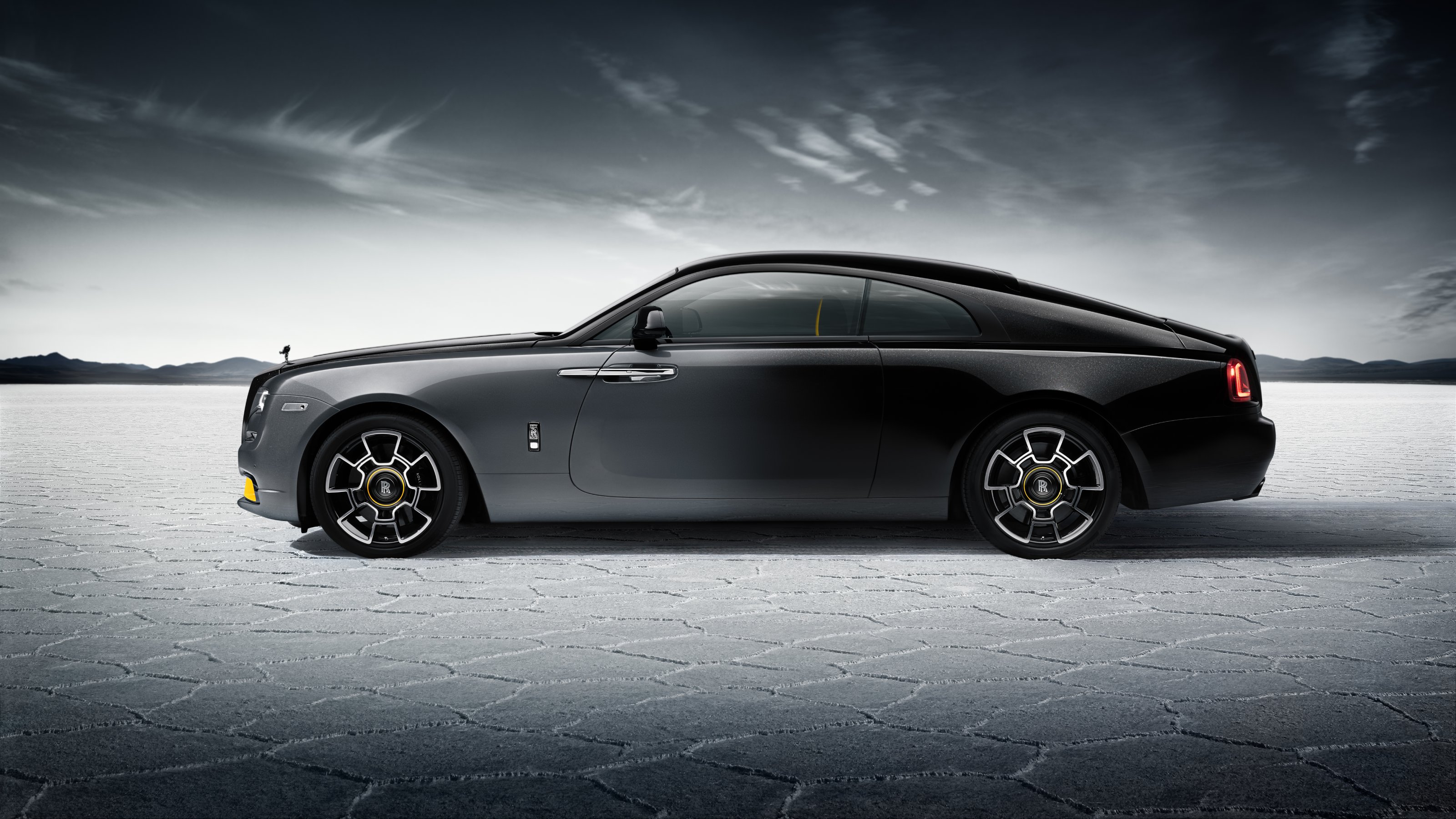
In a few months’ time, the Rolls-Royce Spectre will be unleashed onto the world. The first-ever pure electric production Rolls-Royce, the Spectre is the first salvo in a technical roll-out that’ll eventually see the legendary brand transformed into an EV-only company.
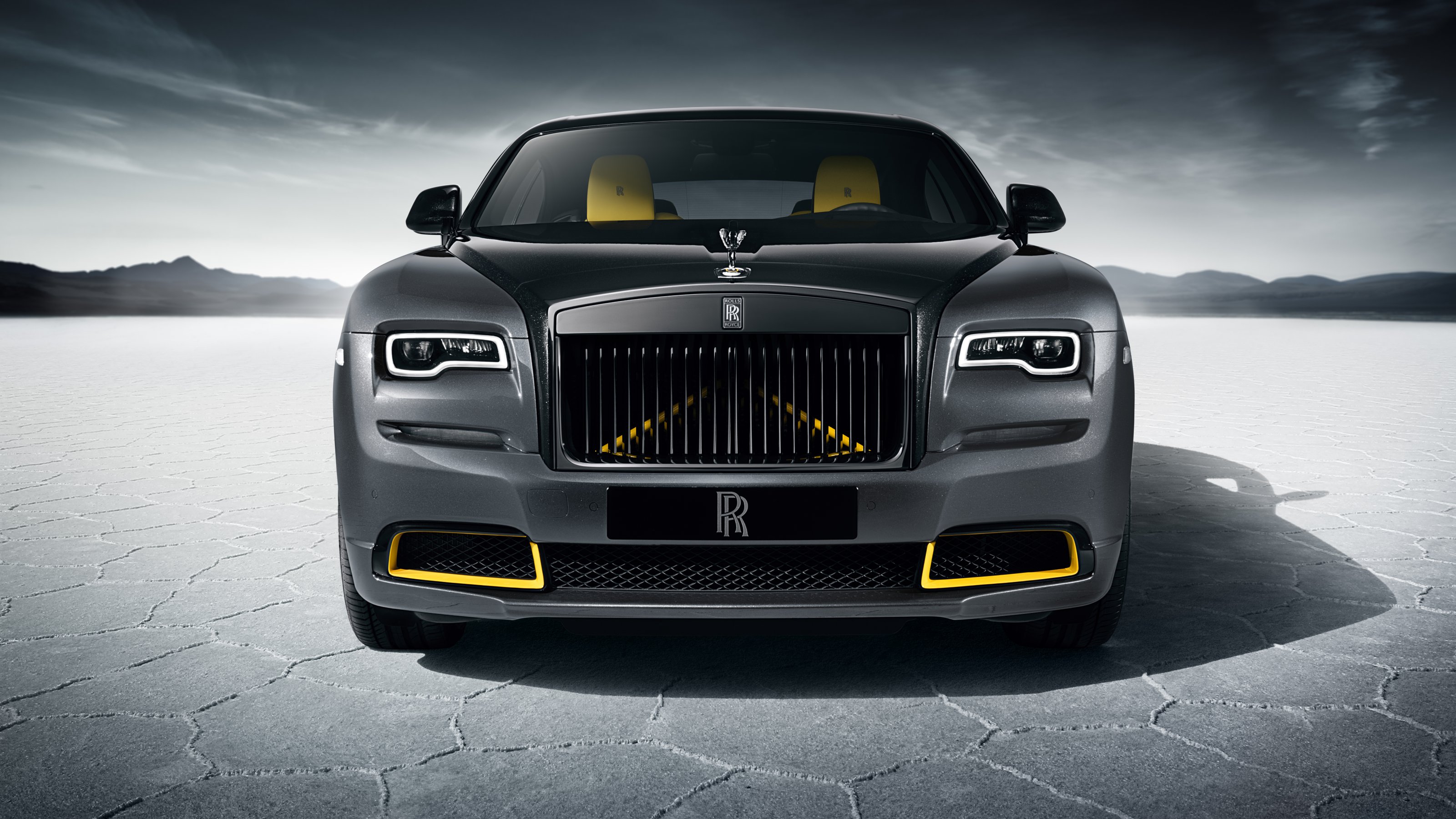
Before that happens, however, Rolls-Royce is making sure that its majestic internal combustion engines go out with a bang, not a whimper. The Rolls-Royce Black Badge Wraith Black Arrow is one such bang. Only 12 examples of this mighty V12-engined coupé will be built, the last two-door Rolls-Royce to ever be fitted with this substantial piece of engineering.
Rolls-Royce Black Badge Wraith Black Arrow
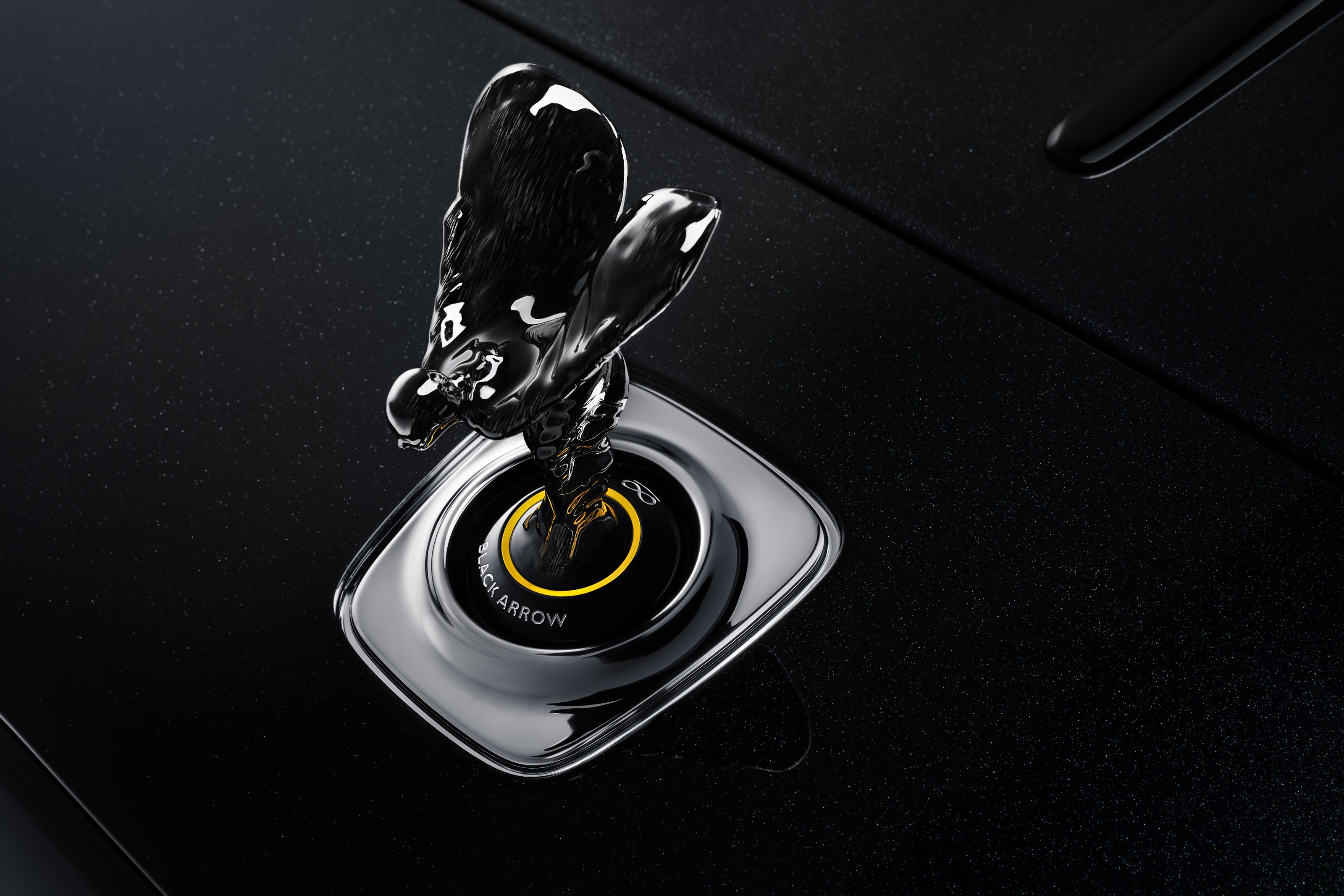
The Wraith has always been a dark horse in the Rolls-Royce stable; more powerful and sporting than its ultra-refined saloon and convertible models. Introduced in 2013, it is a car pitched at owner-drivers, rather than those who prefer to employ a chauffeur. The new edition is one of the company’s exclusive Black Badge series, a way of gussying up the ‘stock’ cars with a more performance-focused tune, in addition to finishes, materials and hand-crafted touches.
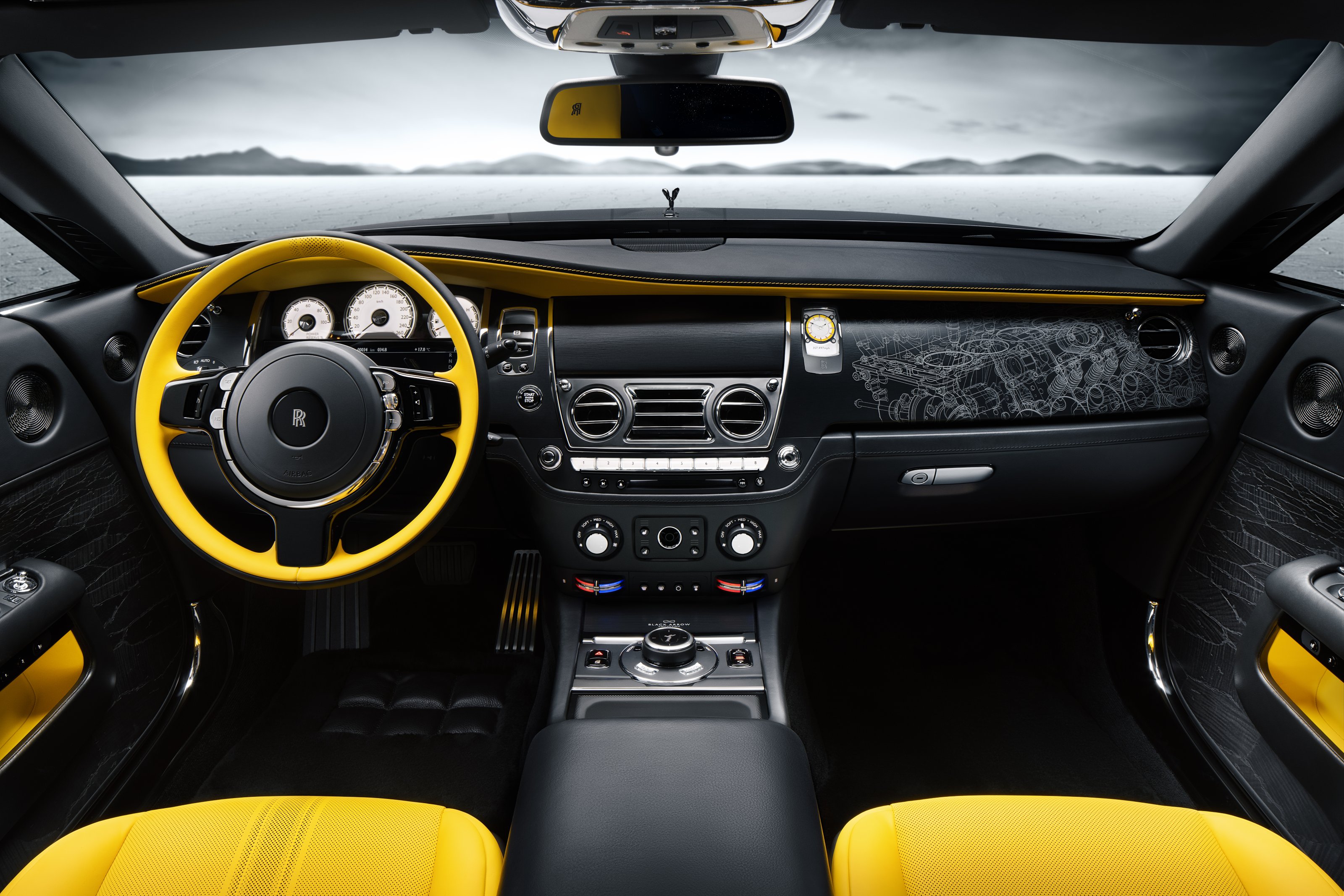
The touchstone for the Wraith Black Arrow is a 1930s world land speed record holder, the Thunderbolt, a mighty twin-engined car driven by one Captain George Edward Thomas Eyston at record-breaking speeds of over 350mph across the Bonneville Salt Flats in Utah.
Eyston was a moustachioed daredevil, cut from the same cloth as other high-profile, high-living Rolls-Royce drivers of the pre-war era. Thunderbolt was a mighty machine, powered by two V12 Rolls-Royce aero engines, each with a capacity of 36.5 litres (the Wraith’s engine is 6.6 litres). It also had eight wheels and weighed seven tonnes.
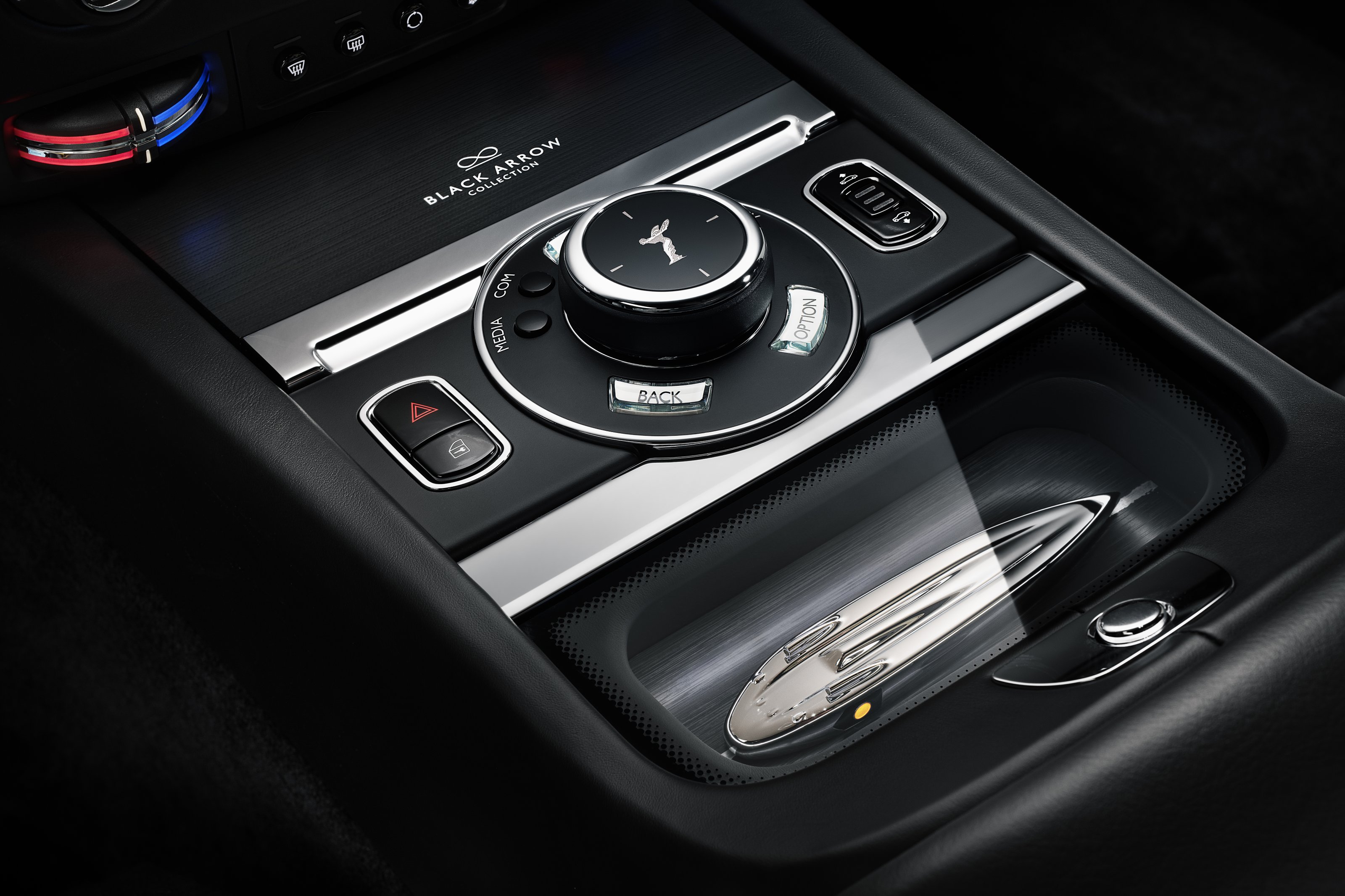
The name of the new edition comes from Eyston’s graphic paintwork on his record-breaker – a black arrow with a yellow circular motif to aid the timing equipment on the high-speed runs. This combination of black and yellow is carried throughout the Rolls-Royce, with the Thunderbolt honoured further via the scale model set between the front seats.
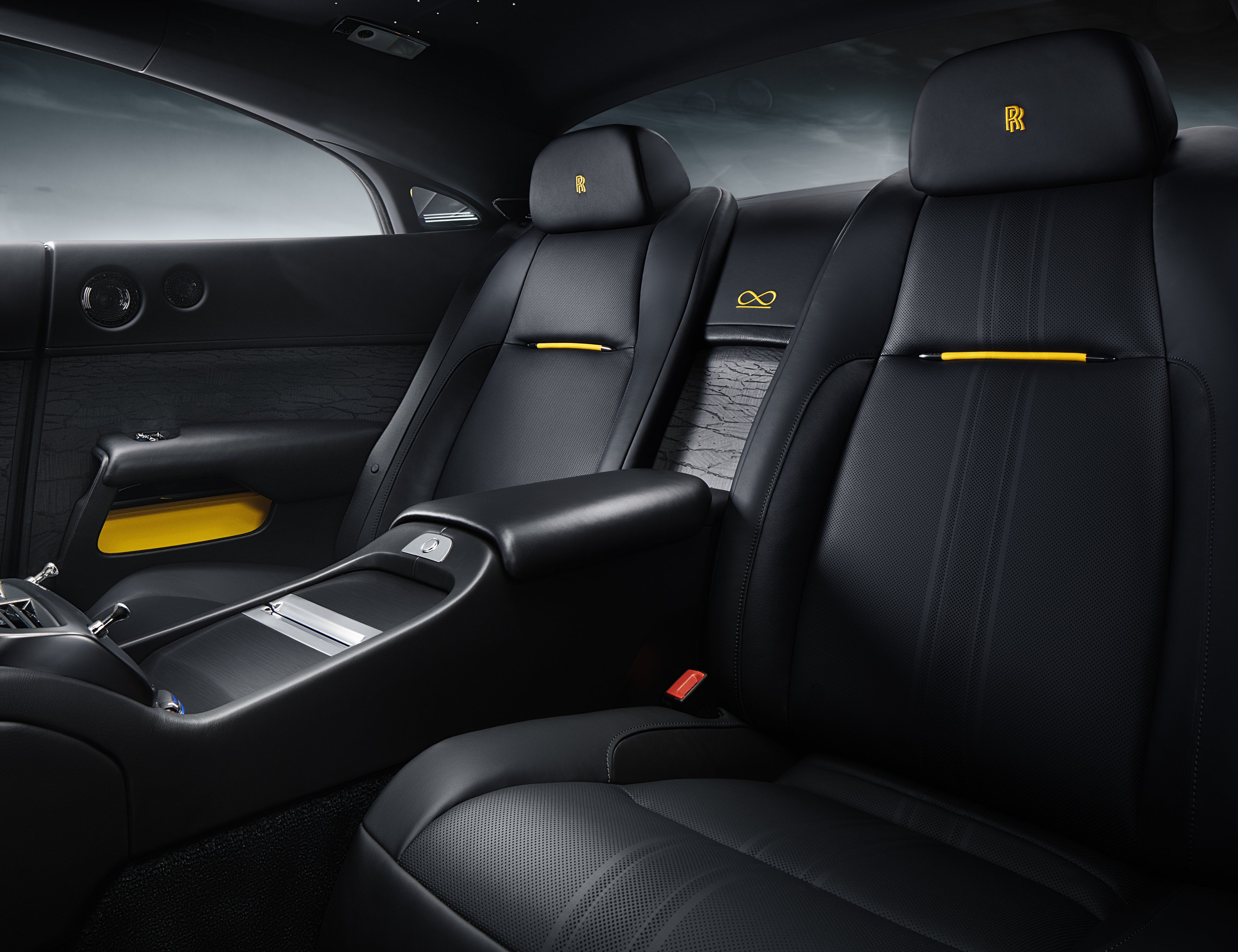
Vivid splashes of yellow are everywhere – the front seats, the steering wheel, the underside of the dash, in the door pockets, the front air inlets and the centre of the wheels.
These special editions, usually sold out long before they’re shown to the general public, offer Rolls-Royce the chance to push the envelope with their techniques. On the Black Arrow, the trademark Starlight Headliner has a galaxy’s worth of fibre-optic lights, 2,117 of them. In a typical RR touch, the company has aligned the constellations to appear ‘precisely as they would have been over the Utah skies on 16 September 1938’.
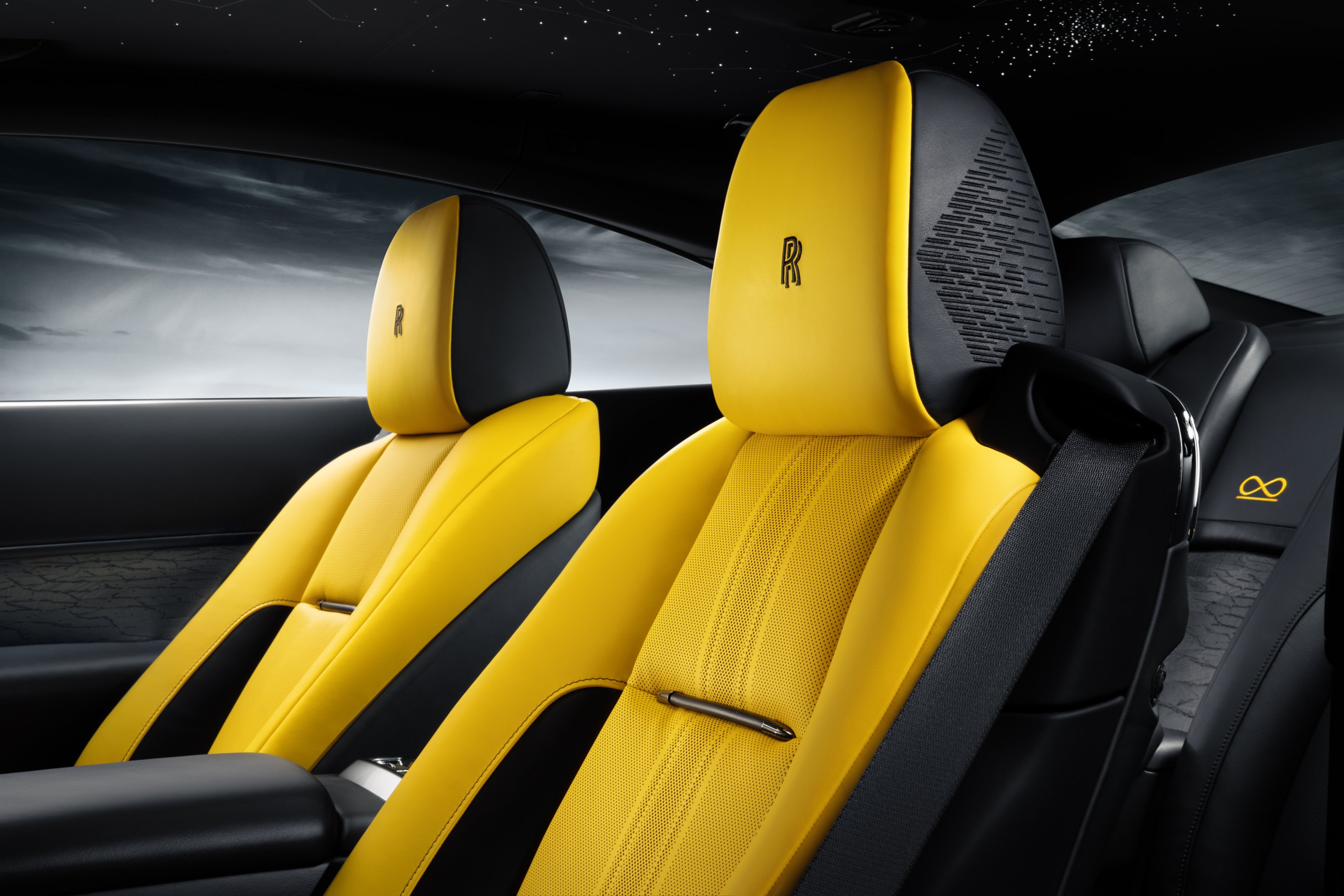
Elsewhere, the door panels each contain 320 pieces of marquetry to create a surface intended to evoke the crusted surface of the Bonneville Salt Flats, across which its inspiration once hurtled. The dash fascia is graced with an exploded drawing of the V12 engine that powers the car.
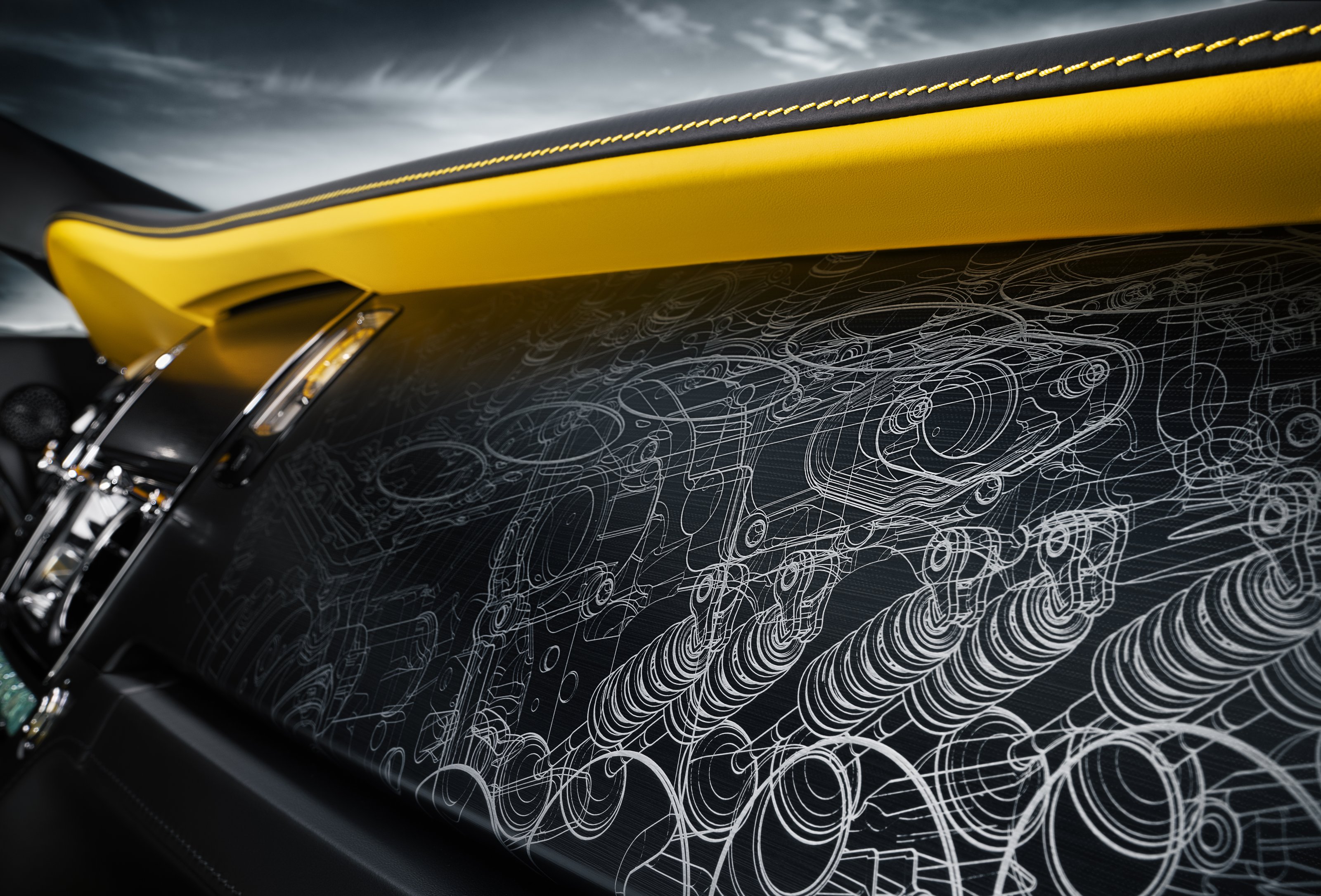
What will Rolls-Royce lose when combustion is no longer the beating heart of its products? Probably very little. EVs provide silence with the extreme engineering effort required to hush the myriad moving parts of internal combustion. Nevertheless, unequalled craft and bomb-proof construction will ensure this particular Wraith will never dematerialise into the ether.
Rolls-Royce Wraith, Rolls-RoyceMotorCars.com







